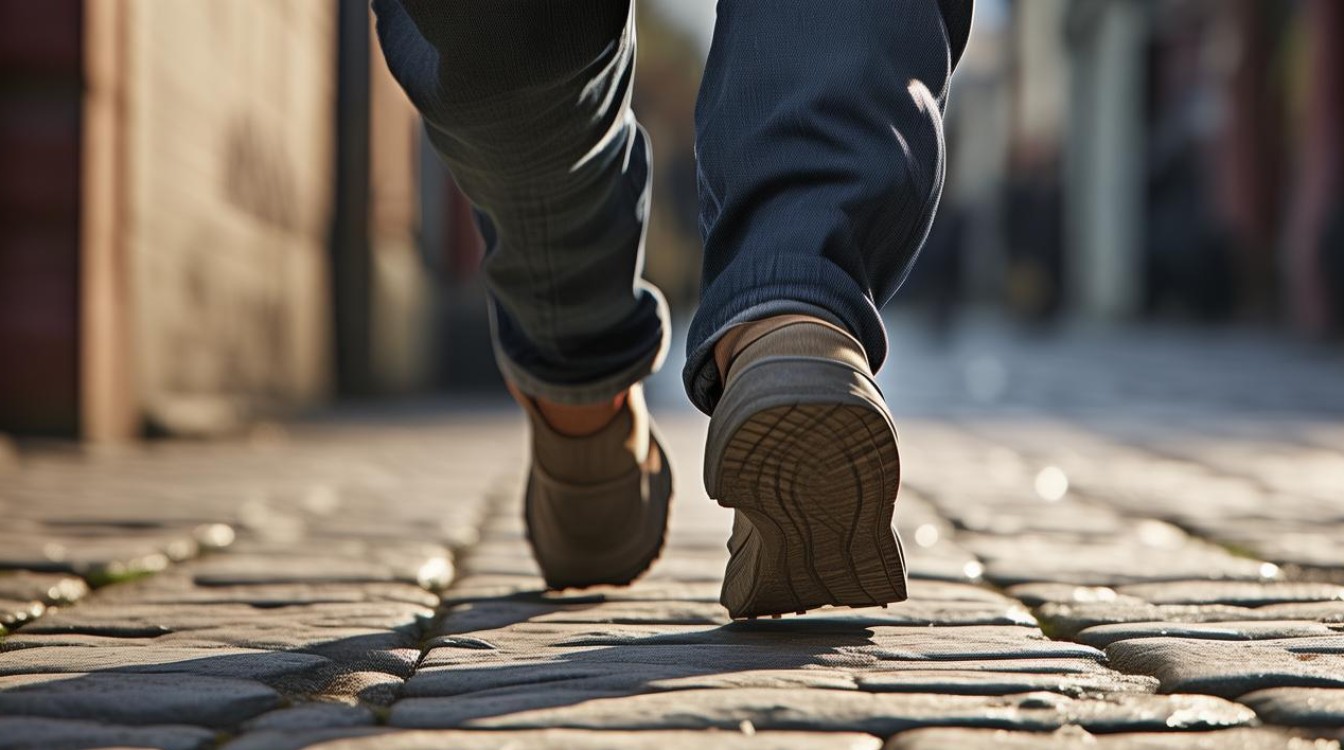Walking is a fundamental human activity, yet the English language offers a rich variety of words to describe different ways of moving on foot. Each term carries subtle distinctions in speed, purpose, and emotion. Whether you're learning English or simply curious about linguistic nuances, knowing these differences can enhance your vocabulary and communication.

Walk – The Basic Movement
"Walk" is the most general term, referring to moving at a steady, moderate pace with one foot always on the ground. It implies no urgency or special manner.
- Example: "She likes to walk in the park every morning."
Stroll – Leisurely and Relaxed
A "stroll" suggests a slow, relaxed walk, often for pleasure. It conveys enjoyment and lack of hurry.
- Example: "They strolled along the beach at sunset."
March – Purposeful and Rhythmic
"March" describes walking with a steady, measured step, often in a group or military formation. It implies discipline and determination.
- Example: "The soldiers marched in perfect unison."
Hike – Long-Distance and Challenging
A "hike" involves walking over long distances, usually in nature or rough terrain. It suggests physical effort and adventure.
- Example: "We hiked up the mountain to see the sunrise."
Wander – Aimless and Exploratory
To "wander" means to walk without a fixed direction, often driven by curiosity. It can imply a lack of purpose or a desire to explore.
- Example: "He wandered through the old streets, discovering hidden cafes."
Stride – Confident and Long-Stepped
"Stride" refers to walking with long, purposeful steps, often showing confidence or urgency.
- Example: "She strode into the meeting room, ready to present her ideas."
Trudge – Heavy and Weary
"Trudge" describes walking slowly and with effort, usually due to exhaustion or difficult conditions like mud or snow.

- Example: "After hours of climbing, they trudged back to the campsite."
Saunter – Casual and Carefree
"Saunter" is similar to "stroll" but with a slightly more confident or stylish attitude. It suggests an unhurried, self-assured walk.
- Example: "He sauntered into the party as if he owned the place."
Pace – Repetitive and Anxious
"Pace" means walking back and forth in the same area, often due to nervousness or deep thought.
- Example: "She paced the hallway while waiting for the test results."
Tiptoe – Quiet and Cautious
"Tiptoe" refers to walking on the balls of the feet to move silently or avoid detection.
- Example: "The child tiptoed past the sleeping dog."
Limp – Uneven Due to Injury
"Limp" describes walking unevenly because of pain or injury in one leg.
- Example: "After twisting his ankle, he limped back home."
Shuffle – Dragging the Feet
"Shuffle" means walking without lifting the feet fully, often suggesting tiredness or reluctance.
- Example: "He shuffled to the kitchen, still half-asleep."
Sneak – Moving Secretly
To "sneak" is to walk quietly and carefully to avoid being seen or heard.
- Example: "The cat sneaked up on the bird."
Strut – Proud and Arrogant
"Strut" implies walking in a way that shows excessive confidence or vanity.

- Example: "The model strutted down the runway with confidence."
Amble – Slow and Unhurried
"Amble" is similar to "stroll" but may suggest a slightly more meandering path.
- Example: "They ambled through the countryside, enjoying the scenery."
Tramp – Heavy and Forceful
"Tramp" means walking with heavy, noisy steps, often over long distances.
- Example: "He tramped through the forest for hours."
Meander – Winding and Indirect
"Meander" describes walking in a winding, leisurely path, often without a clear destination.
- Example: "The river meandered through the valley, and so did we."
Gallivant – Playful and Social
"Gallivant" suggests traveling or walking around in a carefree, often social manner.
- Example: "They spent the summer gallivanting around Europe."
Plod – Slow and Laborious
"Plod" means walking with slow, heavy steps, often due to fatigue or reluctance.
- Example: "The workers plodded home after a long shift."
Scamper – Quick and Light
"Scamper" refers to moving quickly with light, hurried steps, often used for small animals or children.
- Example: "The squirrels scampered up the tree."
Sashay – Flamboyant and Graceful
"Sashay" means walking in a confident, exaggerated manner, often with a swaying motion.

- Example: "She sashayed across the dance floor."
Ramble – Lengthy and Unstructured
"Ramble" can mean walking for a long time without a fixed path, or speaking in a wandering manner.
- Example: "They rambled through the hills all afternoon."
Conclusion
English offers an impressive range of words to describe walking, each with its own flavor. Whether you're strolling through a park, striding into a meeting, or trudging through snow, the right word can paint a vivid picture. Understanding these distinctions helps in both writing and conversation, allowing for more precise and expressive communication.
The next time you walk, consider how you're moving—there's likely a perfect word for it.


